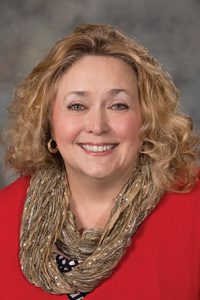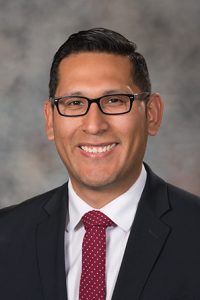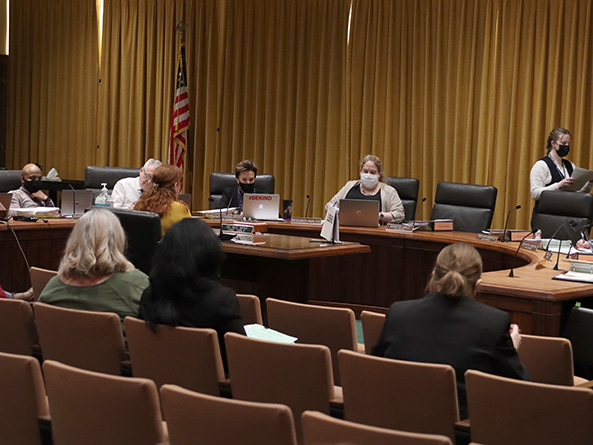Basic skills requirements for teaching candidates considered
Teaching candidates no longer would be required to pass a standardized test to demonstrate proficiency in basic reading, writing and math under three bills heard Jan. 31 by the Education Committee.

Fremont Sen. Lynne Walz, chairperson of the Education Committee, said students currently are required to pass the Praxis core exam before enrolling in a Nebraska teacher education program. The State Board of Education also may require applicants to pass the exam before receiving an entry-level teaching certificate or permit.
She said LB1218, introduced by the committee, would help address the state’s teacher shortage by instead allowing teaching candidates to demonstrate proficiency in multiple ways, including a college admission examination or college coursework.
“These changes can substantially increase the teacher population in Nebraska while still ensuring that all teachers in our state continue to be high quality and provide [a] robust education experience for our kids in the classroom,” Walz said.
LB1218 also would provide $1,000 in loan forgiveness to student teachers under the Attracting Excellence to Teaching Program. An individual would have to provide service for a full academic semester within an accredited or approved public or private school and meet certain requirements to qualify.

LB690, introduced by Sen. Carol Blood of Bellevue, would not eliminate the basic skills exam as a demonstration of competency but would allow a teaching candidate to demonstrate competency through coursework.
LB960, sponsored by Omaha Sen. Tony Vargas, would eliminate the requirements that entry-level teachers demonstrate basic skills competency and that applicants for a temporary teaching certificate demonstrate basic skills competency and complete a subject area examination.

Vargas said standardized tests like the Praxis core are a barrier for students who have trouble with timed tests or for whom English is a second language.
“The Praxis test is an expensive hurdle that is not serving our prospective teachers, our students or our education system,” he said. “This standardized test does not and should not determine what type of teachers they will be for our students.”
April Buschelman testified in support of LB1218 on behalf of the Nebraska Association of Colleges for Teacher Education. She said alternatives to the Praxis core exam are essential because the test has not been linked to teaching effectiveness and research shows that pass rates are significantly lower for students of color.
LB1218 would remove barriers for otherwise qualified teaching candidates by acknowledging that multiple measures can demonstrate academic competency to teach effectively, Buschelman said.
“We teach our students to look beyond test scores, identify strengths through multiple intelligences and build relationships with students in the classroom,” she said. “We should demonstrate this as a state as well.”
Sara Skretta, educator certification officer at the University of Nebraska-Lincoln, testified in support of LB1218 on behalf of the University of Nebraska. She said it would allow postsecondary institutions to use their expertise and engagement with students to determine whether they can demonstrate proficiency in basic skills through coursework, experiential learning and other assessments.
Using multiple measures would save those students time and money and help alleviate a “critical” teacher shortage, Skretta said.
Between 2015 and 2017, she said, 14 percent of the more than 1,400 University of Nebraska-Lincoln students who took the Praxis core exam failed at least one section. Of those individuals, Skretta said, 90 percent left the teacher preparation program.
Jenni Benson testified in support of LB1218 on behalf of the Nebraska State Education Association, the Nebraska Council of School Administrators, the Nebraska Child Health and Education Alliance and the Nebraska Rural Community Schools Association.
She said the additional loan forgiveness would be a “small token of encouragement” for college students who in most cases have worked as unpaid full-time teachers for four months.
Adrianne Kruger, a junior education major at Wayne State College, testified in support of LB960. Over the past three years, Kruger said, she has spent almost $850 trying to pass the Praxis core exam so that she can move on to upper-level education courses.
No one testified in opposition to the bills and the committee took no immediate action on them.


